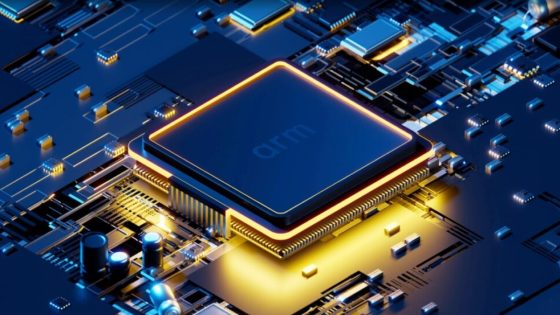ARM’s new Cortex-X CPU core could close Android’s performance gap with iPhone،
A report from a research firm Moor Outlook and Strategy (via AndroidAuthority) claims that the upcoming Cortex-X processor core could be the most powerful processor core for smartphones to date. Considering that the current Cortex-X processor core is the Cortex-X4, the idea here is that the next iteration will be known as the Cortex-X5 processor core and will be codenamed “Blackhawk.”
“Blackhawk,” according to Moor, will be present on phones shipping late this year. These devices could be marketed next year during CES (January 7-January 10, 2025) or MWC (the dates have not yet been announced). ARM CEO René Haas said the company's strategy is to “eliminate the performance gap between ARM-designed processors and custom ARM implementations.”

ARM has a new Cortex-X processor core available on smartphones in 2025
In other words, ARM wants chips like the upcoming MediaTek Dimensity 9400 and Samsung Exynos 2500, both of which will use the new ARM Cortex-X processor core, to come close in performance to Apple's A18 Pro and Bionic SoCs. Apple, which will feature a custom processor. implementation of ARM technology. If you thought the Snapdragon 8 Gen 4 would feature ARM's new CPU core, forget it. This application processor will debut with Qualcomm's Oryon processor cores.
Based on Geekbench 6, ARM claims that the Blackhawk core delivers “the largest year-over-year increase in IPC (instructions per cycle/clock) performance in 5 years.” Moor's report also states that the Blackhawk will offer “large” LLM (Large Language Model) performance, meaning the new Cortex-X processor core will offer enhanced generative AI capabilities. Speaking of AI, ARM says its Cortex processor is the #1 target for developers, as opposed to using the NPU or GPU.
The report states: “NPU and GPU can be an efficient way to run AI, but a CPU is the simplest and most popular way, which is why developers are targeting it. A higher performance CPU obviously helps here, but as the world moves more and more towards smaller language models, the ARM platform with a higher performance CPU and GPU, combined with its libraries and tightly integrated ML (Machine Learning) frameworks, will likely result in a more efficient experience on devices.
















